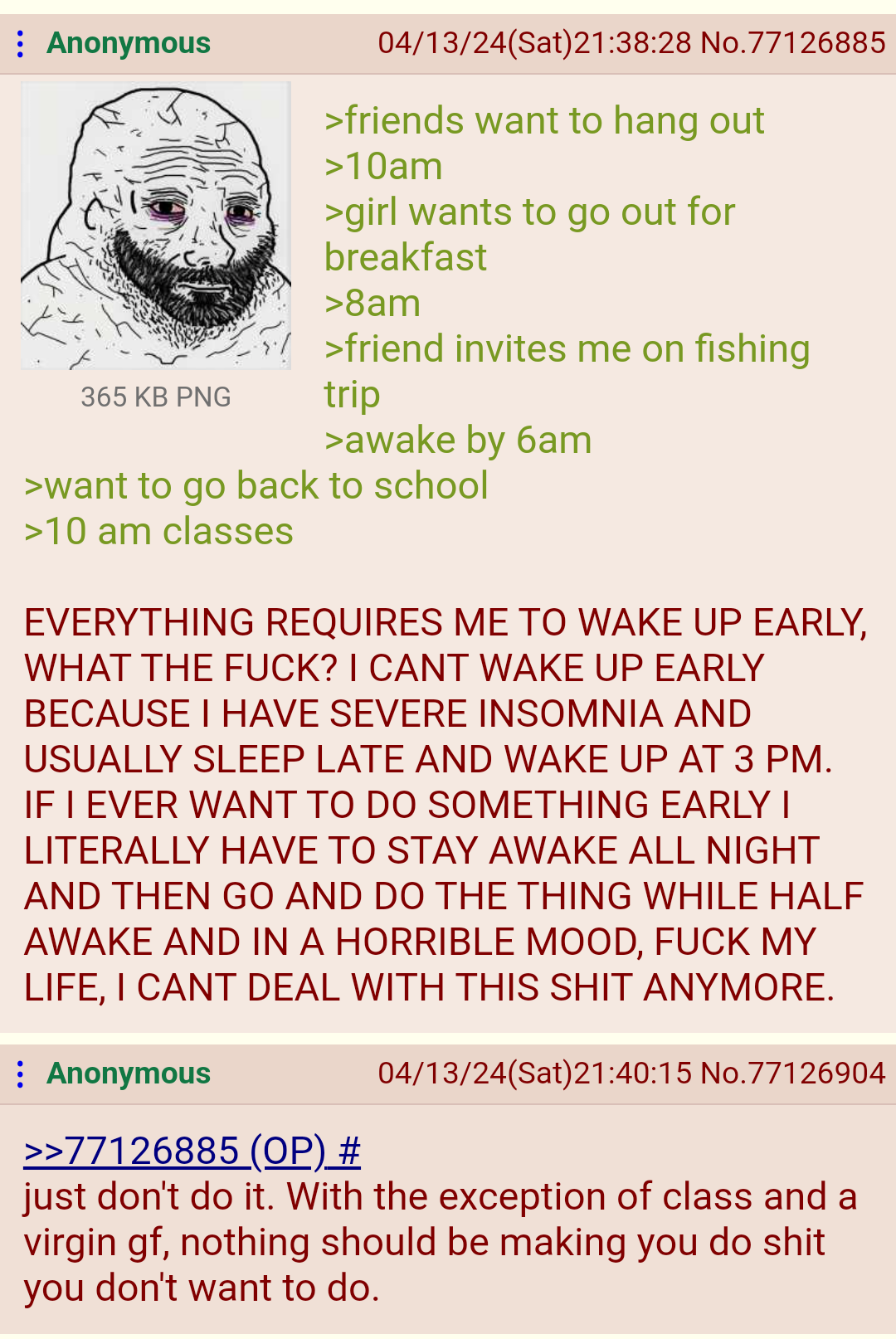this post was submitted on 14 Apr 2024
248 points (91.6% liked)
Greentext
4452 readers
698 users here now
This is a place to share greentexts and witness the confounding life of Anon. If you're new to the Greentext community, think of it as a sort of zoo with Anon as the main attraction.
Be warned:
- Anon is often crazy.
- Anon is often depressed.
- Anon frequently shares thoughts that are immature, offensive, or incomprehensible.
If you find yourself getting angry (or god forbid, agreeing) with something Anon has said, you might be doing it wrong.
founded 1 year ago
MODERATORS
you are viewing a single comment's thread
view the rest of the comments
view the rest of the comments

That may be true, but at least the genes for night owls are present in more people than the genes for early birds.
So it should be expected that, regardless of phone usage, over half of the population will go to bed and wake up ~2-3h later than expected.
If your timezone is closely aligned with the sun, that'd be 22:00-06:00 for early birds and 01:00-09:00 for night owls. But if your timezone isn't, both of these times would shift around.
For me personally, no matter when I go to bed, whether it's 22:00 or 03:00, I always wake up precisely 09:30 without any alarm clock. But this also means if I have to wake up earlier, e.g. at 8am, I'll be very tired and not well rested.
I think you are severely overestimating how many people sleep till 9 or later. There's no way it's more than half.
Look at what times are peak traffic or peak public transport. Anyone with kids wakes up early. Most kids do. Anyone who has to be at school by 9 is up earlier.
9am wake ups are for people in their 20s till mid 30s generally. And only if you have a very understanding white collar job. Most blue collar workers and labourers are up much earlier.
I don't think they were commenting on how many people can sleep late, I think it was a comment on what time people would naturally sleep to barring all other factors but genetics.